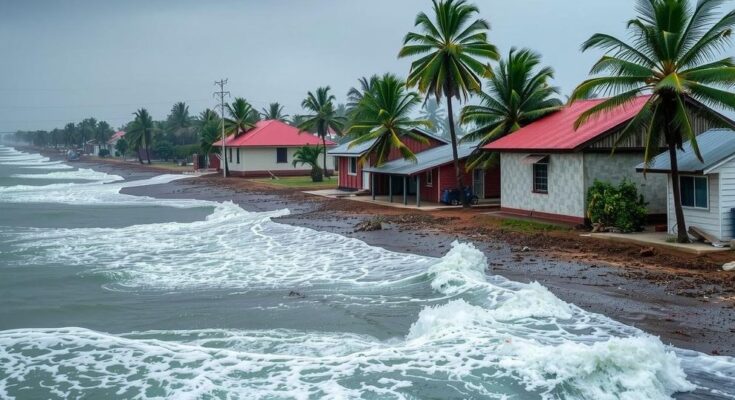Cyclone Chido has caused 45 confirmed fatalities in Mozambique, with Cabo Delgado province reporting the highest toll. The storm, characterized by winds up to 260 km/h and heavy rainfall, has injured nearly 500 people and destroyed thousands of homes, affecting more than 180,000 individuals.
The death toll from Cyclone Chido, which made landfall in Mozambique on December 15, 2024, has tragically increased to 45 as reported by the National Institute of Risk and Disaster Management on Wednesday. Initially, 34 lives were confirmed lost, primarily in Cabo Delgado province, where cyclonic winds reached speeds of approximately 260 kilometers (160 miles) per hour, accompanied by heavy rainfall. The updated figures reveal that 38 fatalities occurred in Cabo Delgado, along with four in Nampula province and three in Niassa. In addition to the casualties, nearly 500 individuals have sustained injuries, and over 180,000 people are estimated to be affected by the storm. The cyclone has resulted in extensive damage, with nearly 24,000 homes completely destroyed and 12,300 partially damaged. Cyclone Chido has inflicted significant suffering on a region that is already grappling with issues of conflict and underdevelopment.
Cyclone Chido has struck northern Mozambique, compounding the challenges faced by a region frequently affected by severe weather events. The Cabo Delgado province, where the cyclone made impact, is particularly susceptible to cyclones and has many vulnerable communities due to ongoing conflicts and lack of infrastructure. The cyclone followed its passage over Mayotte, an island in the Indian Ocean, where initial reports suggest devastating losses of life. As the storm impacted Mozambique, it further exacerbated the plight of the locals, many of whom were already in precarious living conditions.
The increasing death toll from Cyclone Chido highlights the severe impact of this natural disaster on Mozambique. With reported fatalities now at 45 and significant injury figures, the human toll is devastating. Furthermore, the destruction of thousands of homes places immense strain on communities already facing challenges. Ongoing humanitarian efforts will be crucial for recovery in the affected provinces.
Original Source: www.seychellesnewsagency.com




